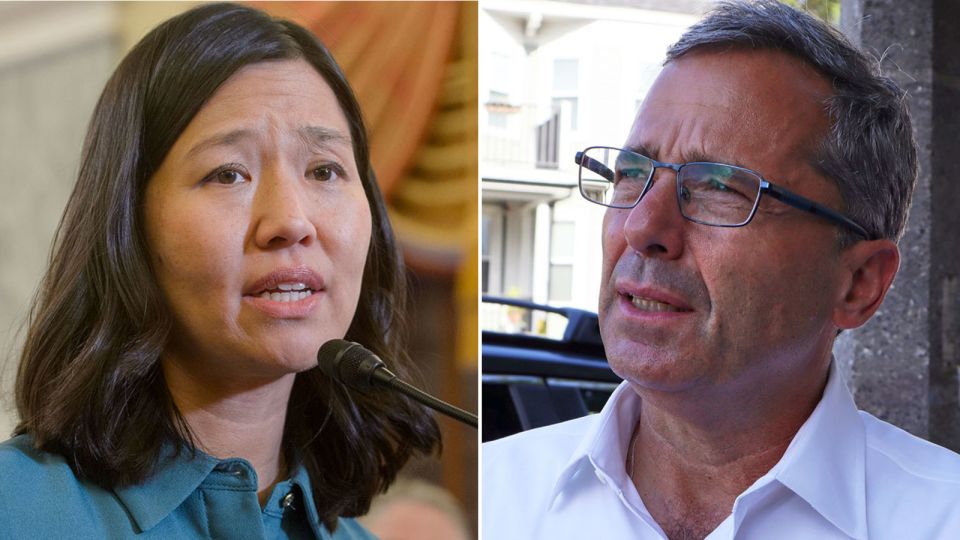Boston Mayor Michelle Wu, a frequent target of the Trump administration, advanced in Tuesday’s preliminary election and will face Josh Kraft, the son of the Patriots owner, in November.
Wu, the city’s first Asian and female leader, has been bolstered in part by her defense of Boston against attacks from the Trump administration. Members of the administration, often led by President Donald Trump’s border czar Tom Homan, have accused the city of not doing enough to crackdown on illegal immigration and threatened a surge in arrests. Boston is commonly known as a “sanctuary city,” and Wu has repeatedly said she wants it to be a welcoming place for immigrants.
Just last week, Trump’s Department of Justice filed a lawsuit against Wu, the city of Boston and its police department over its so-called sanctuary policies, claiming they’re interfering with immigration enforcement. In response, Wu accused Trump of “attacking cities to hide his administration’s failures.”
On Tuesday, the Department of Homeland Security put out a statement announcing the arrests of seven people as part of a crackdown in Massachusetts.
“Sanctuary policies like those pushed by Mayor Wu not only attract and harbor criminals but protect them at the peril of law-abiding American citizens,” DHS Assistant Secretary Tricia McLaughlin said in a statement.
Kraft, a fellow Democrat and a nonprofit leader, injected millions of his own money into his campaign and set records for spending in a Boston mayoral preliminary election. Kraft has also been critical of Trump’s attacks. He has pushed Wu particularly hard on housing, saying she hasn’t done enough to increase options and affordability in Boston.
Wu and Kraft bested two other candidates in the preliminary election: military veteran and former school district committee member Robert Cappucci and community activist Domingos DaRosa.
Wu highlights housing, crime and climate change
On Tuesday while visiting polls, Wu said the Trump administration is targeting Boston because it “represents all that is good about our democracy.”
“We are proof of what’s possible when people come together, and we’re proof of everything that shows why they are wrong,” she said.
Wu, who often works with her infant daughter at her side, has also benefited from widespread support on the City Council and a string of endorsements from Democratic leaders. She also has used the pulpit of her position to highlight her successes around housing, combating climate change and reducing crime, rolling out a series of initiatives all summer.
David Woodruff, a retired research support specialist at the Massachusetts Institute of Technology, said he was supporting Wu because he wants “people who are progressive and are strengthening democracy” in office.
“I like the way she stands up to Trump, I like what she’s been doing on the national scene,” he said.
Kraft struggles to find message that resonates with voters
Kraft, who heads the Kraft Family Philanthropies and the New England Patriots Foundation, has been unable to find a strong message that resonates with voters. He has targeted everything from bike paths to the cost of living in the city to his concerns about homelessness and drug addiction in one section of the city known as Mass and Cass.
Last week, Kraft and two top campaign advisers “mutually parted ways,” according to a statement from his campaign.
As of the end of August, Kraft had outspent Wu, $5.5 million to about $1.1 million, thanks in large part to more than $5 million in loans from the candidate to his campaign. Wu entered the final days of the campaign with much more cash in the bank, $2.4 million to about $1.3 million for Kraft.
Jeffrey Berry, a Boston political analyst and professor emeritus at Tufts University, said money is good for creating name recognition, but it’s not enough on its own to win an election. He said Wu has become a “symbol of democratic resistance to the president,” and that will be hard for Kraft to overcome in a city like Boston.
Kraft has switched between attacking Wu and portraying himself as someone who wants to bring positive change to the city.
In an interview with The Associated Press, Kraft said his conversations with voters indicate to him that Wu doesn’t have as strong a grip on the mayor’s seat as some might think.
“Everywhere we go, myself, our team, throughout the neighborhoods of this city — regardless of race, socioeconomics, ethnicity, language — we hear the same thing: People don’t feel listened to, people don’t feel connected to the mayor and the mayoral administration,” he said. “Some of the polls have a big margin, but let me tell you something: Polls don’t decide elections. People decide elections.”
In Dorchester, Kraft supporter Remy Lawrence said she’s been impressed by his commitment to Boston’s youth. Kraft was CEO of the Boys & Girls Clubs of Boston and worked with the organization for decades. Lawrence said Kraft personally reached out to her after her 13-year-old son, Tyler, who participated in Kraft family youth programming, was killed by a gunman in 2023 while walking near his grandparents’ home in the Mattapan neighborhood.
“I believe we need change in this city – I know we need change in this city,” she said. “We need a leader who is accessible, who’s accountable, who’s connected.”
For more CNN news and newsletters create an account at CNN.com

